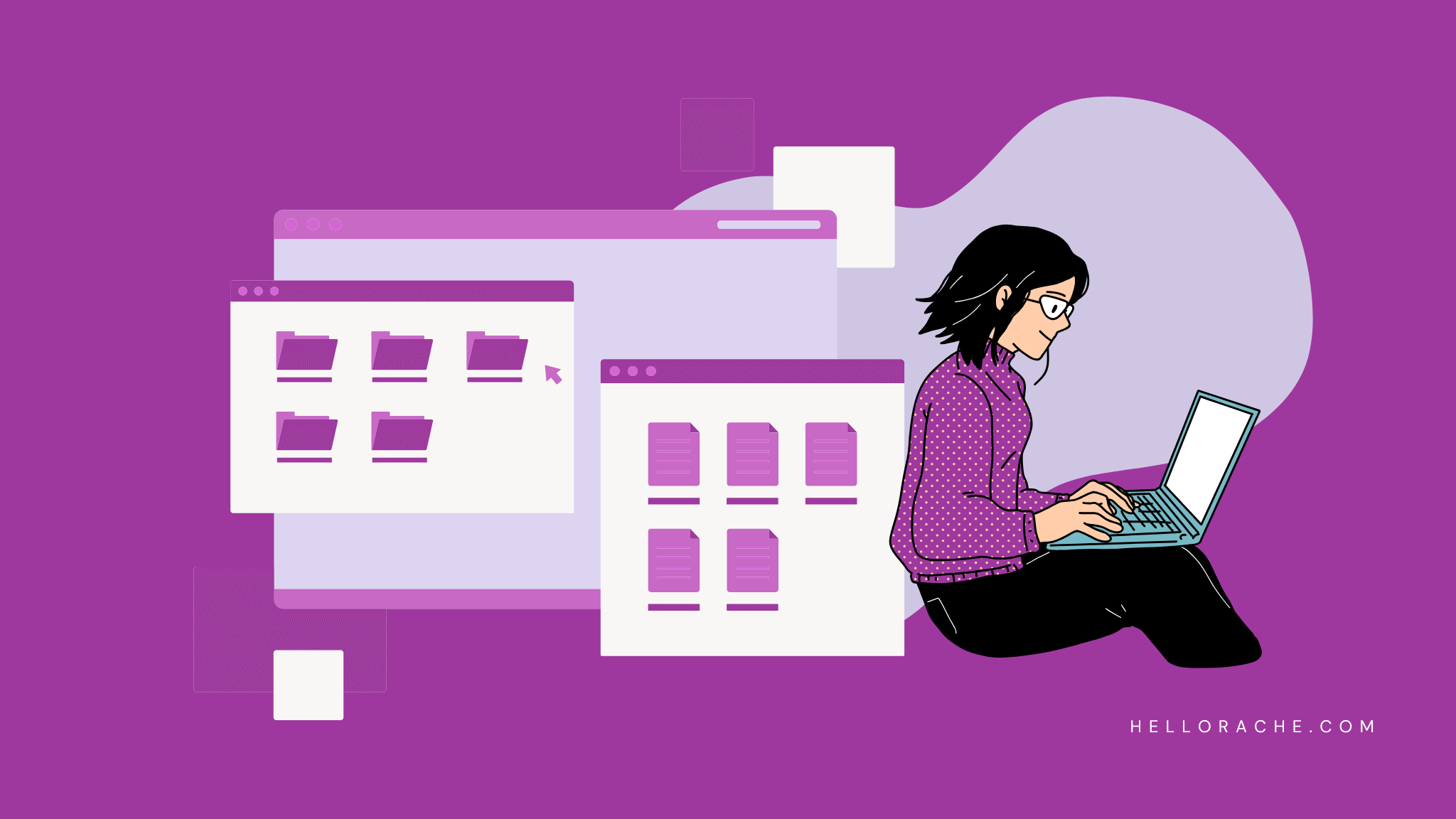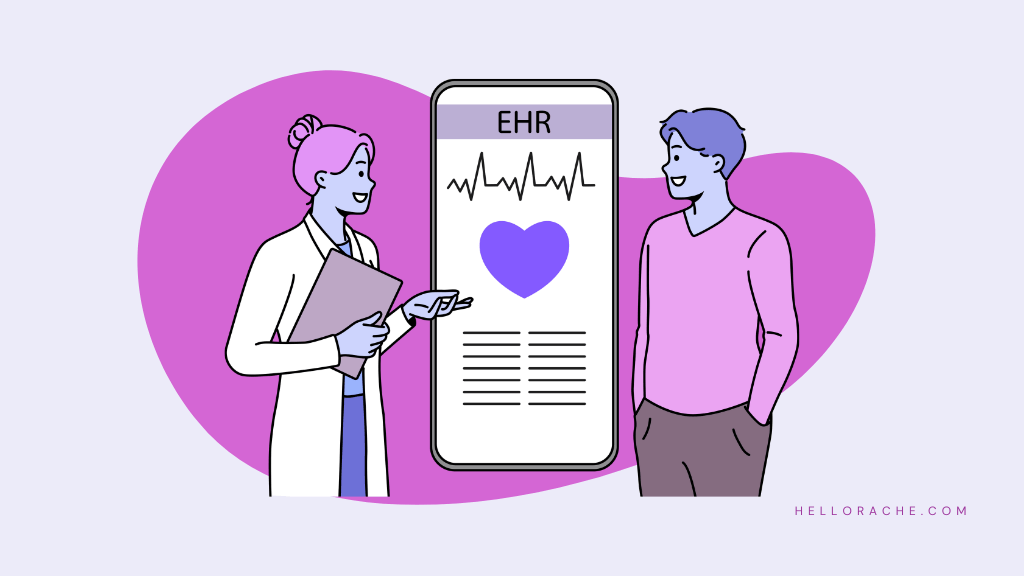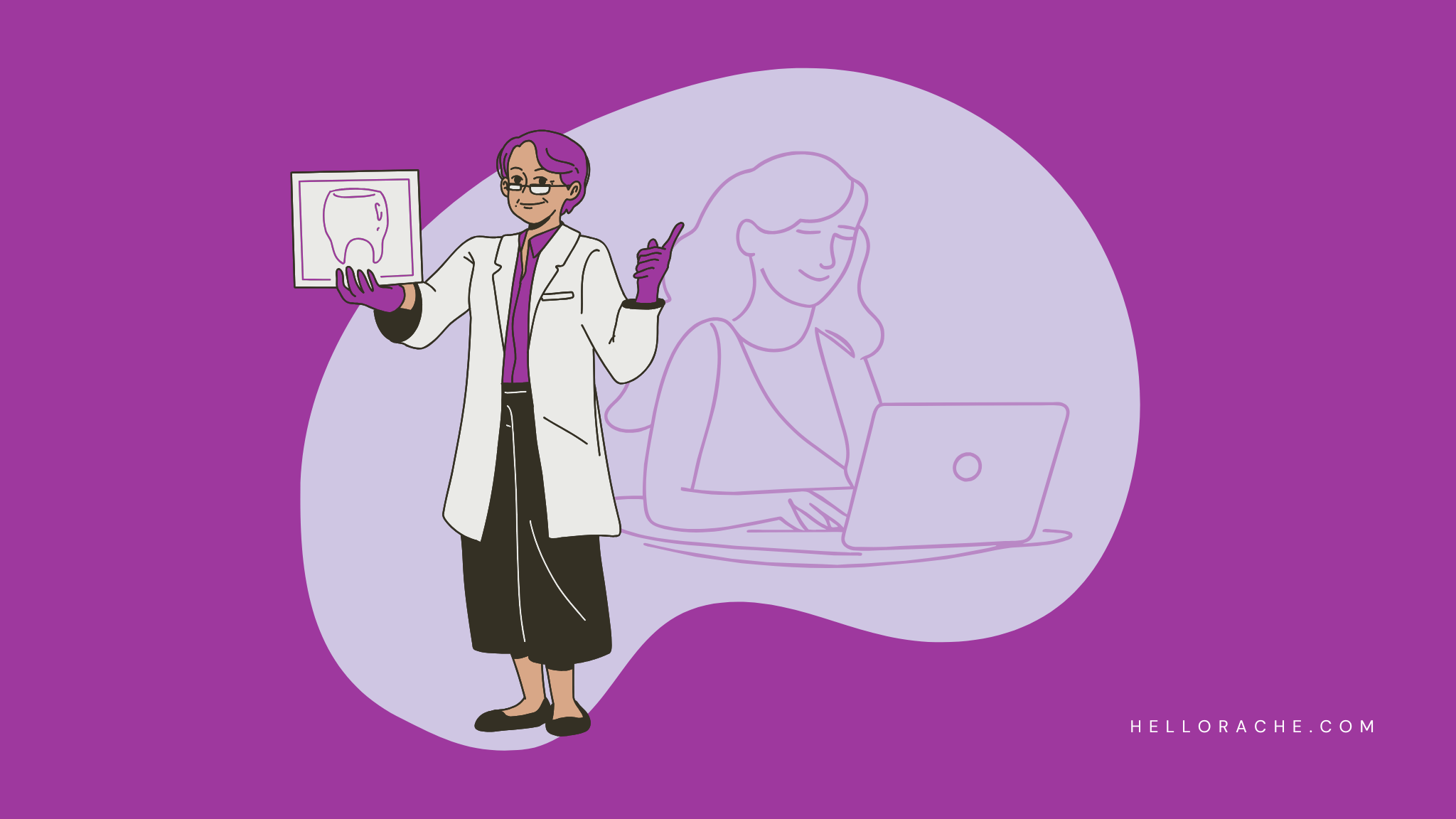Are you overwhelmed with the growing pile of administrative tasks in your mental health practice? You’re not alone. Many mental health practitioners hire assistants to serve patients better and take back control of their work days.
But what is a mental health assistant’s salary? What other expenses do you need to keep in mind? And is there a more cost-efficient alternative to improve the workflow of your practice? Let’s discuss how much you can expect to pay for an in-person mental health assistant and how you can save using a virtual assistant instead.
What do mental health assistants do?
Mental health assistants work in outpatient centers, hospitals, healthcare agency clinics, psychiatric centers, residential care facilities, behavioral health facilities, and more to support mental health professionals. They’ll usually be responsible for administrative tasks and other to-dos that their colleagues need support with.
Psychologists, psychiatrists, therapists, and counselors can receive support from mental health assistants. But so can other professionals who work in mental healthcare. In some cases, the assistant will handle the back office, but in other cases, they’ll also help out in the front office.
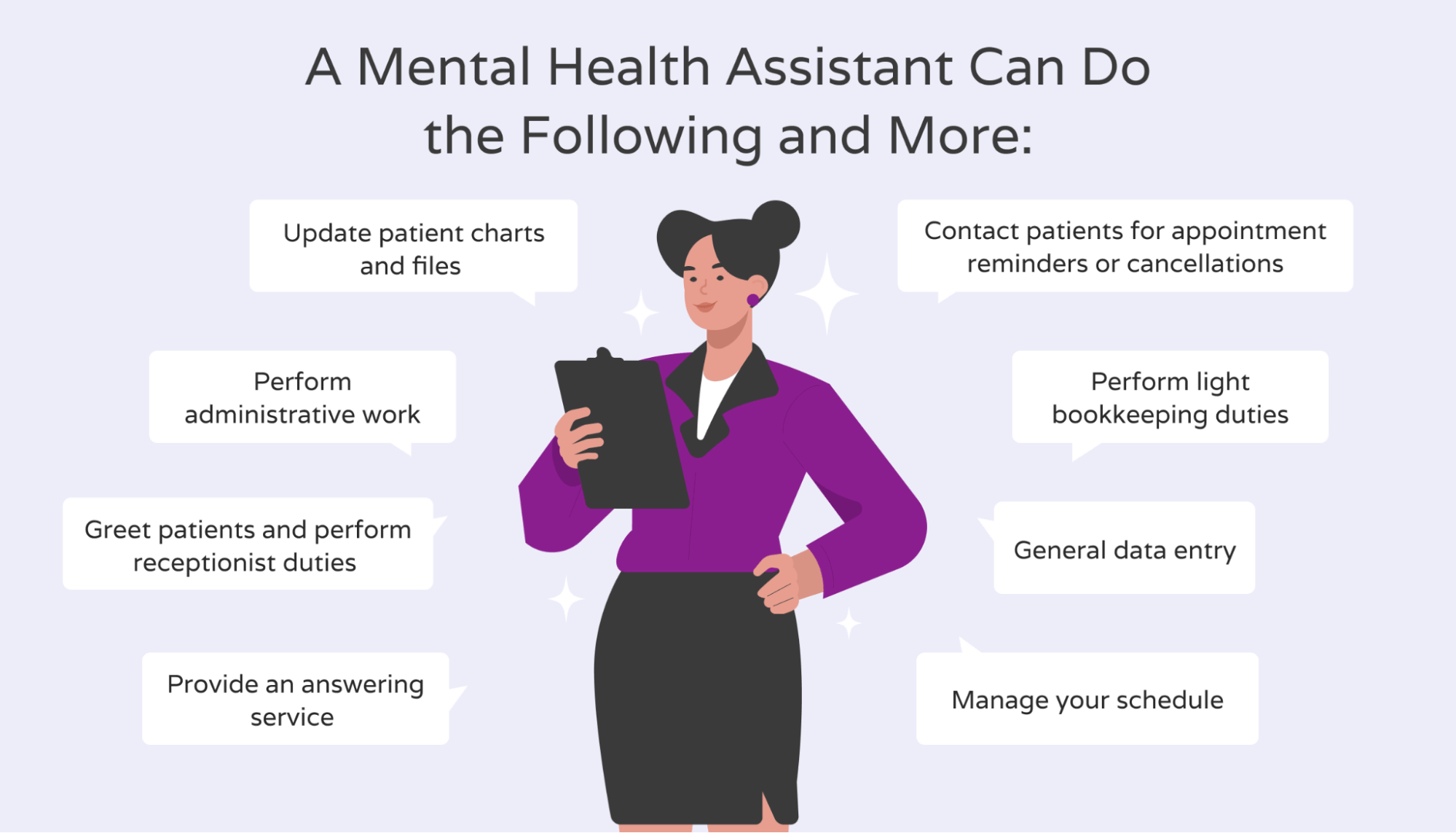
Mental health assistants can handle a plethora of busy work that bothers a health practitioner. For instance, they can update patient charts and files. If they perform live charting during your appointments, they can also transcribe these notes into your system.
If you don’t have a dedicated receptionist – or enough demand to require one – your assistant can greet patients and answer the phone. They can also perform other front desk receptionist duties, including but not limited to:
- Helping patients fill in the correct paperwork
- Taking copays
- Filing insurance claims
- Calling patients for appointment reminders
- Booking new appointments with patients
- Handling cancellations and reschedules
- Managing the clinic calendar
- Liaising with physicians and other mental health practitioners or practices
Depending on their workload and skills, mental health assistants can also perform light bookkeeping tasks. They can enter expenses and revenue streams. However, you may have to train them if you need more advanced support with bank reconciliations and other tasks.
Finally, a mental health assistant can perform any other data entry services needed to keep your private practice running smoothly.
Are you struggling to set aside cash flow to hire a mental health assistant? Get in touch with our team to learn how remote mental health assistants can support your private practice at an affordable rate.
Mental health assistant salary to expect
Are you considering hiring a mental health assistant to alleviate the workload for you or another health practitioner on your team? If so, you might be wondering how much mental health workers make and what you can expect to spend each month to get some help.
The cost of hiring a mental health assistant depends on the candidate’s experience level. But it also depends on local competition and market price. For instance, you may have to pay a higher rate if there’s a labor shortage in your area.
Hourly wage can also vary depending on the tasks they’ll undertake while working for you. If you expect someone to perform receptionist duties as well as bookkeeping and general office management, you may need to pay a higher salary than if you just need data entry.
Candidates who have more training and experience will also demand a higher wage. However, they’ll be more effective with their time and require less training and skill development from you.
Here’s what to consider for average wages. Administrative assistants average an hourly salary of $19.08 per hour in the US. Medical assistants make an average of $17.88 per hour, while psychiatric aides make an average of $16.65 per hour, so job titles and responsibilities can affect the average.
These are only average salaries. You may need to pay more or less, depending on your state.
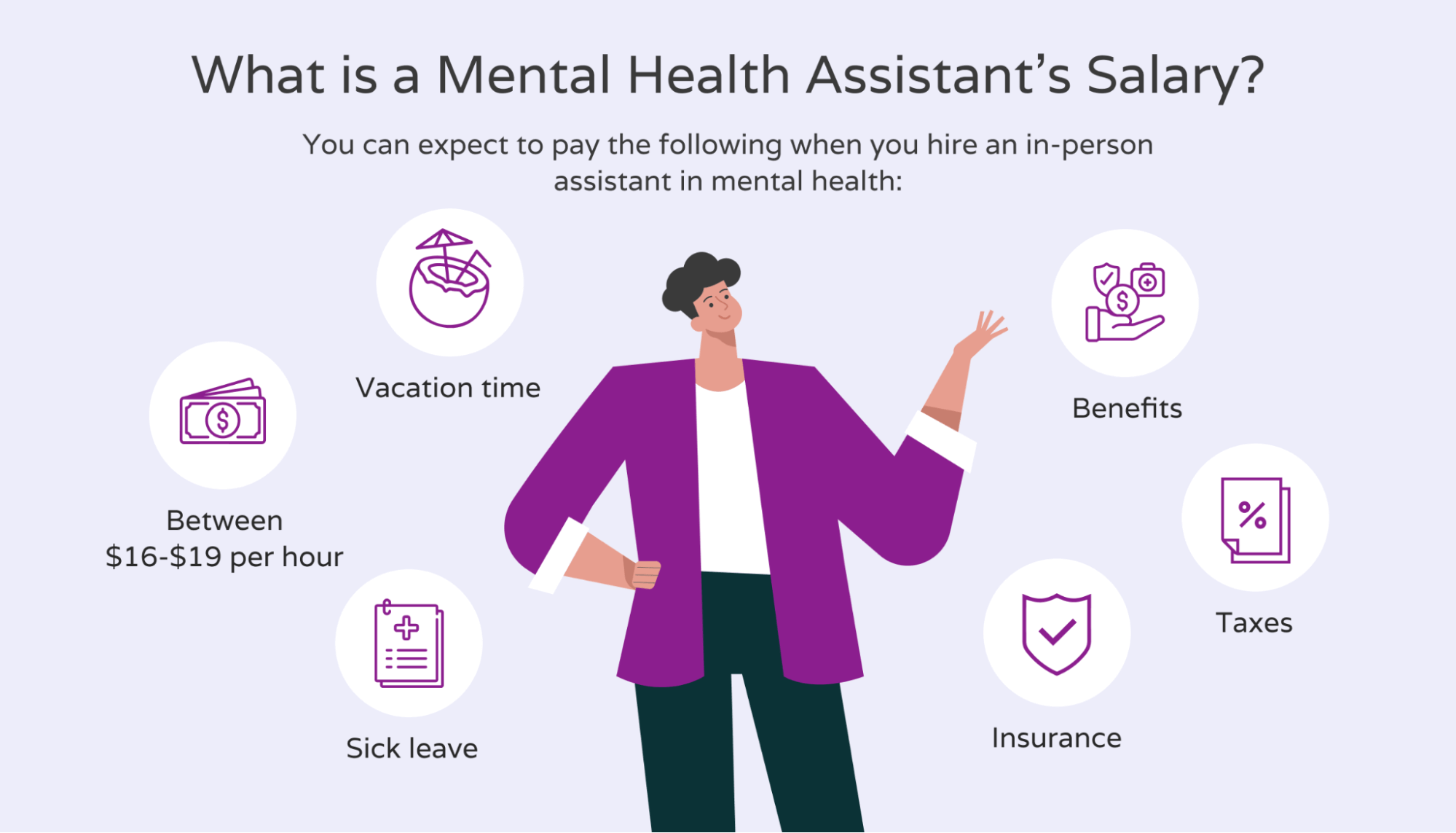
But salary and hourly rates aren’t the only consideration you have to make. You also need to look at additional expenses on top of the salary.
For instance, all employers must contribute to the following at a minimum:
- Social security
- Worker’s compensation insurance
- Medicare
- Unemployment insurance
In some states, you must also provide:
- Disability insurance
- Vacation time and PTO
- Sick leave
These are the minimum. But if you want to attract workers, you may need to also offer retirement benefits, paid parental leave, ongoing training, and other perks.
The costs for one person add up quickly.
How you can improve your mental health services with a virtual mental health assistant
When you factor in every expense, hiring someone in person to work as a mental health assistant is out of reach for many mental health providers. This is especially true when you consider the overhead cost on top of your assistant’s compensation.
Have you considered hiring a virtual mental health assistant instead? Virtual assistants can perform nearly everything you need in-person assistants to do, but they come with several advantages.
Here’s how you can improve your practice with a virtual assistant instead of an in-person worker.
1. Provide a high salary at a lower cost
People who live in the US need a higher hourly wage to stay afloat. That’s because the cost of living is high. But the cost of living is much lower in other countries, such as the Philippines.
That’s why 100% of the Hello Rache virtual workforce is based in the Philippines. This country is known for its friendly and hard-working labor force. They also have several talented workers with college training looking to work for employers overseas.
Why is that? Although the cost of living is lower, workers in the Philippines still deserve a living wage. And a registered nurse in the Philippines only earns an average of $20 per day, which is higher than the local average but still low. Several of them need to go through a commute time of up to three hours daily.
When you hire a virtual mental health assistant from Hello Rache, you only pay $9.50 per hour, flat. For this rate, you get a trained medical professional like a registered nurse who understands your profession.
Although the hourly wage is significantly lower than what you’d pay on average in the US for the same role, it lets mental health assistants in the Philippines earn double or triple the average wage there.
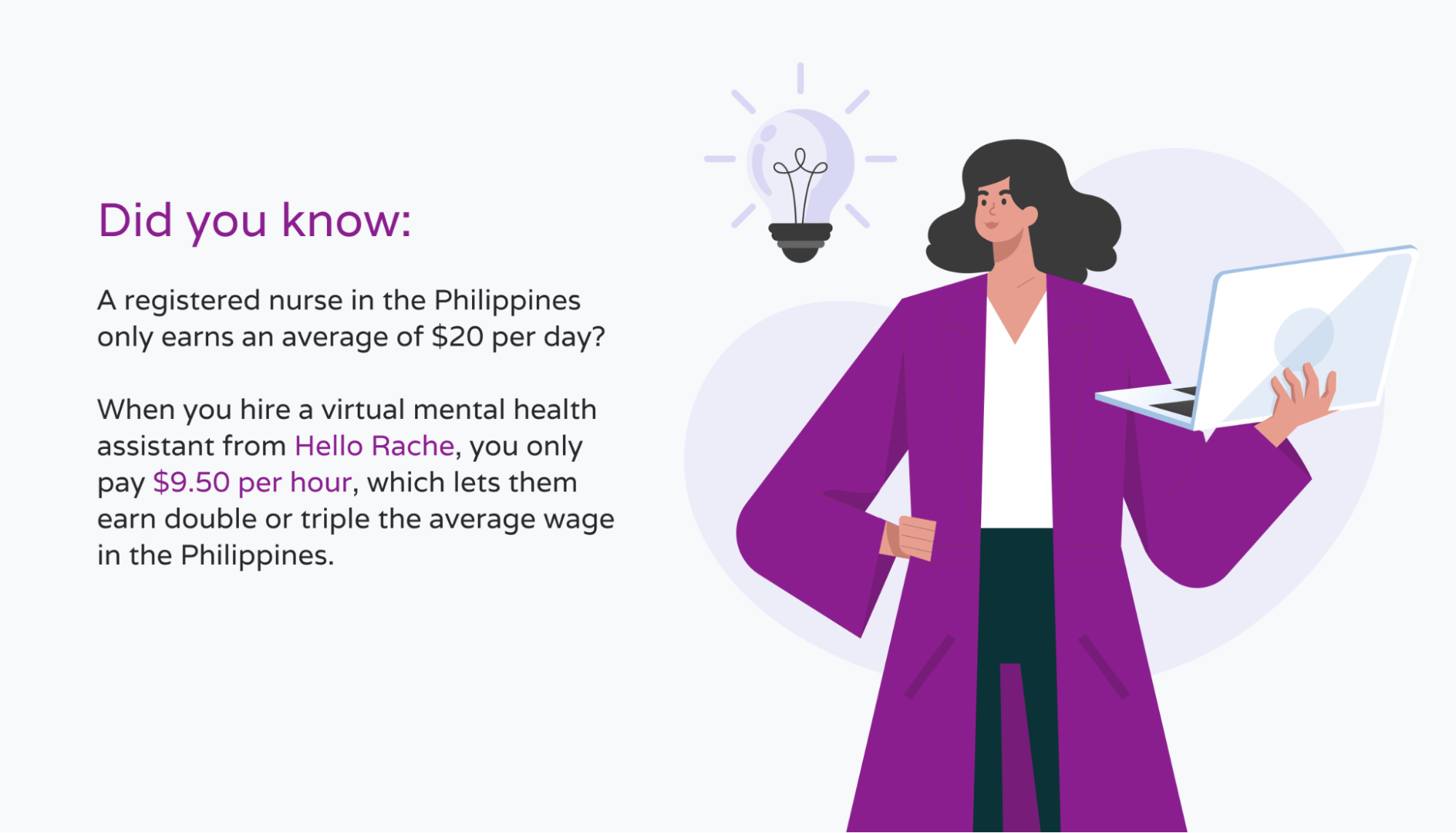
In addition to their hourly wage, your remote mental health assistant will get benefits provided by our company. You don’t need to pay for those benefits out of pocket or manage them.
It’s the easiest way to pay a fair wage without the hassle of managing the complexity of payroll.
2. Go home at 5 p.m. every day
You’ll have a trusted assistant to handle back-office tasks, paperwork, and other administrative duties for you. This means there’s no need to stay late after your appointments and catch up.
You can take your full evening off and take care of yourself. When you come back to work the next day, you’ll be well-rested and ready to serve your patients to the best of your ability.
3. Make your practice run more smoothly (and serve your patients better)
You’re not the only one who benefits when your practice runs more smoothly. Your patients will see the difference, too. That’s because your patient care can improve once you have someone helping out – even virtually.
You’ll get less overwhelmed than if you keep everything on your plate. As a result, you can give your full focus to your patients during sessions or treatments.
Plus, your patients may experience shorter wait times if your virtual mental health assistant provides support in the reception area. Your assistant can also provide a smoother payment process.
Finally, patients can rest easy knowing your appointment process will remain consistent. When your virtual assistant takes over this process for you, it’ll no longer fall through the cracks. Patients can receive timely appointment reminders and not have to worry about trying to get hold of you if they want to reschedule.
4. Remain agile
One of the downsides of hiring an in-person employee is the lack of agility. If you promise a full-time role, you’ll need to consistently provide 40 hours of work and pay for those hours.
But what if you need a mental health assistant sporadically? For instance, what if you only need 10 hours of support for a few months? With a virtual mental health assistant, you can get those needs met without committing to a full-time hire.
Need to ramp up quickly to get 80 hours of support a week? You can do that too, and you won’t need to go back into recruitment mode.

Virtual mental health assistants are a more agile solution than hiring in-person assistants. You can onboard one, two, three, or even ten assistants in just a few days with no strings attached.
Hire a reliable mental health assistant
You don’t have to remain overwhelmed and handle everything on your own. Although in-person mental health assistants can be expensive, virtual assistants can handle nearly the same workload and more at a much more affordable rate.
Book a call with our team, and we’ll help you find the ideal virtual mental health assistant for your practice.



